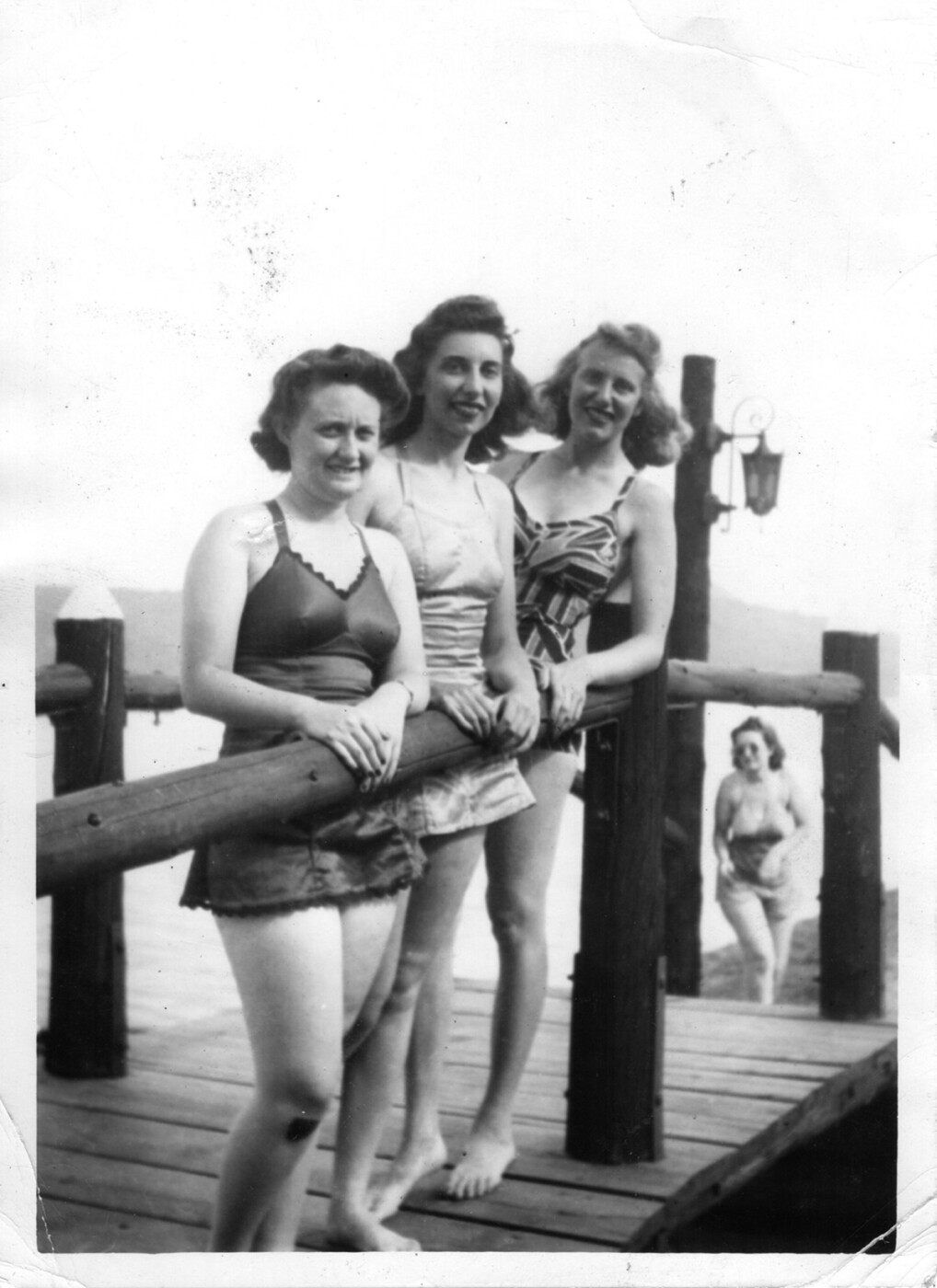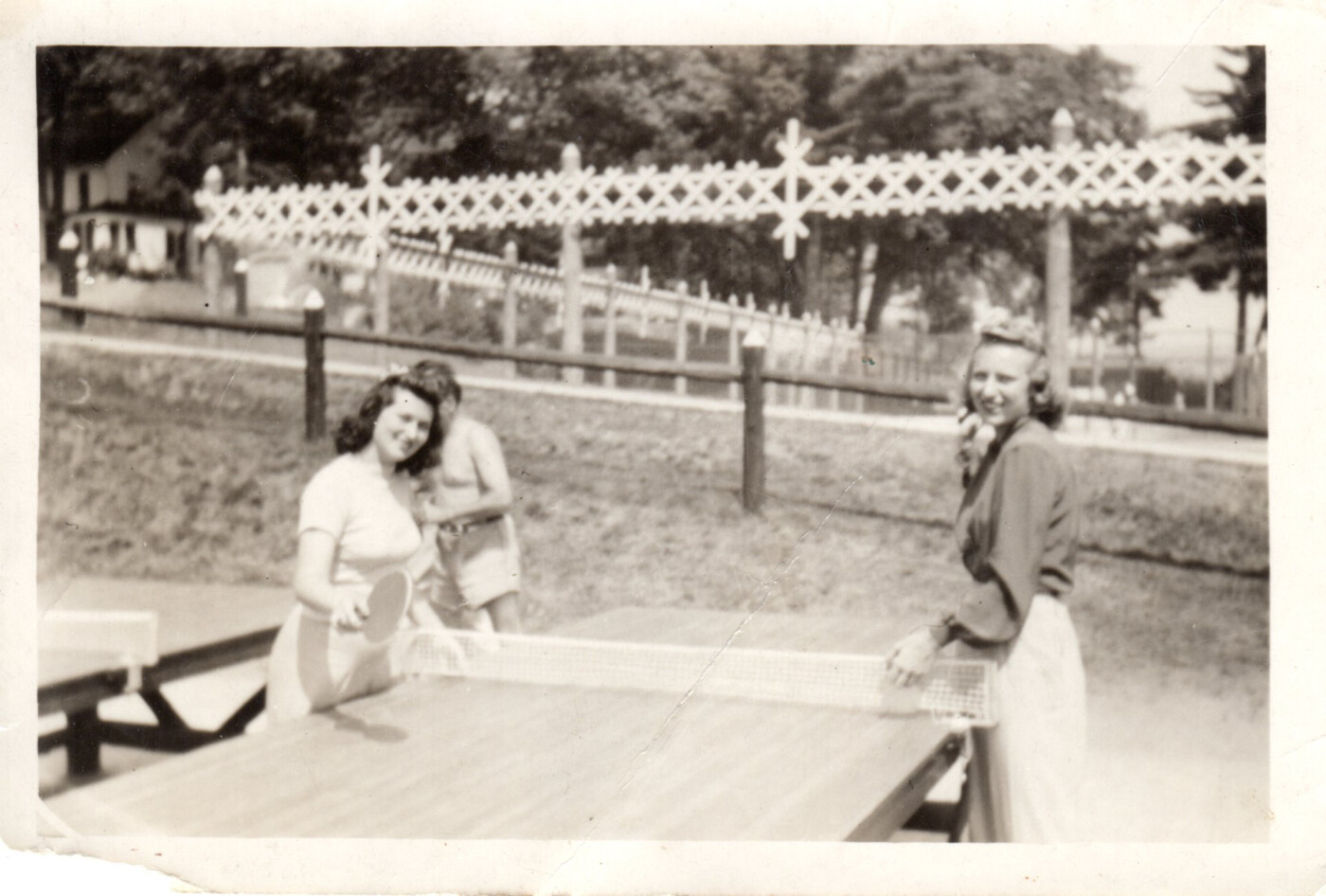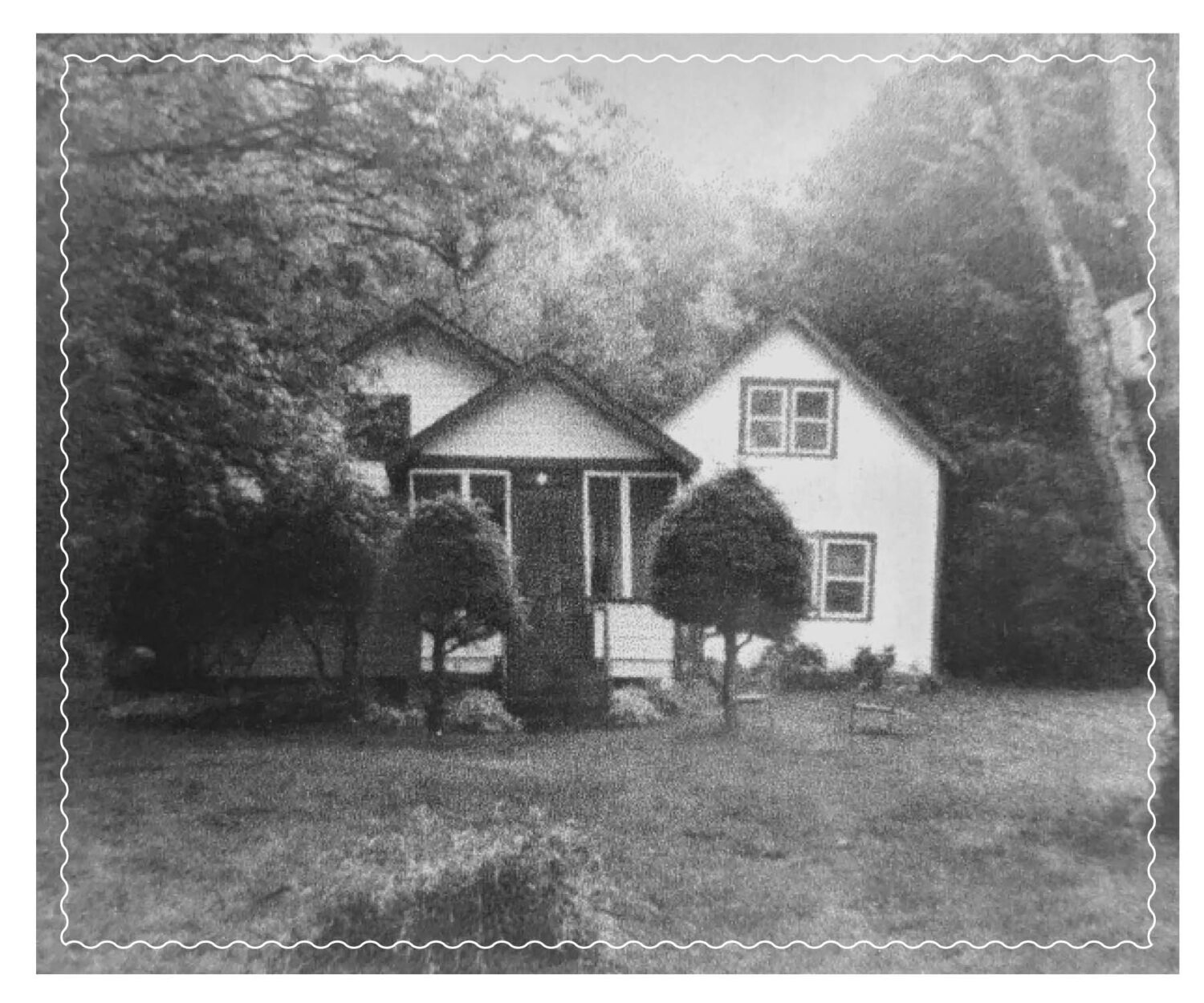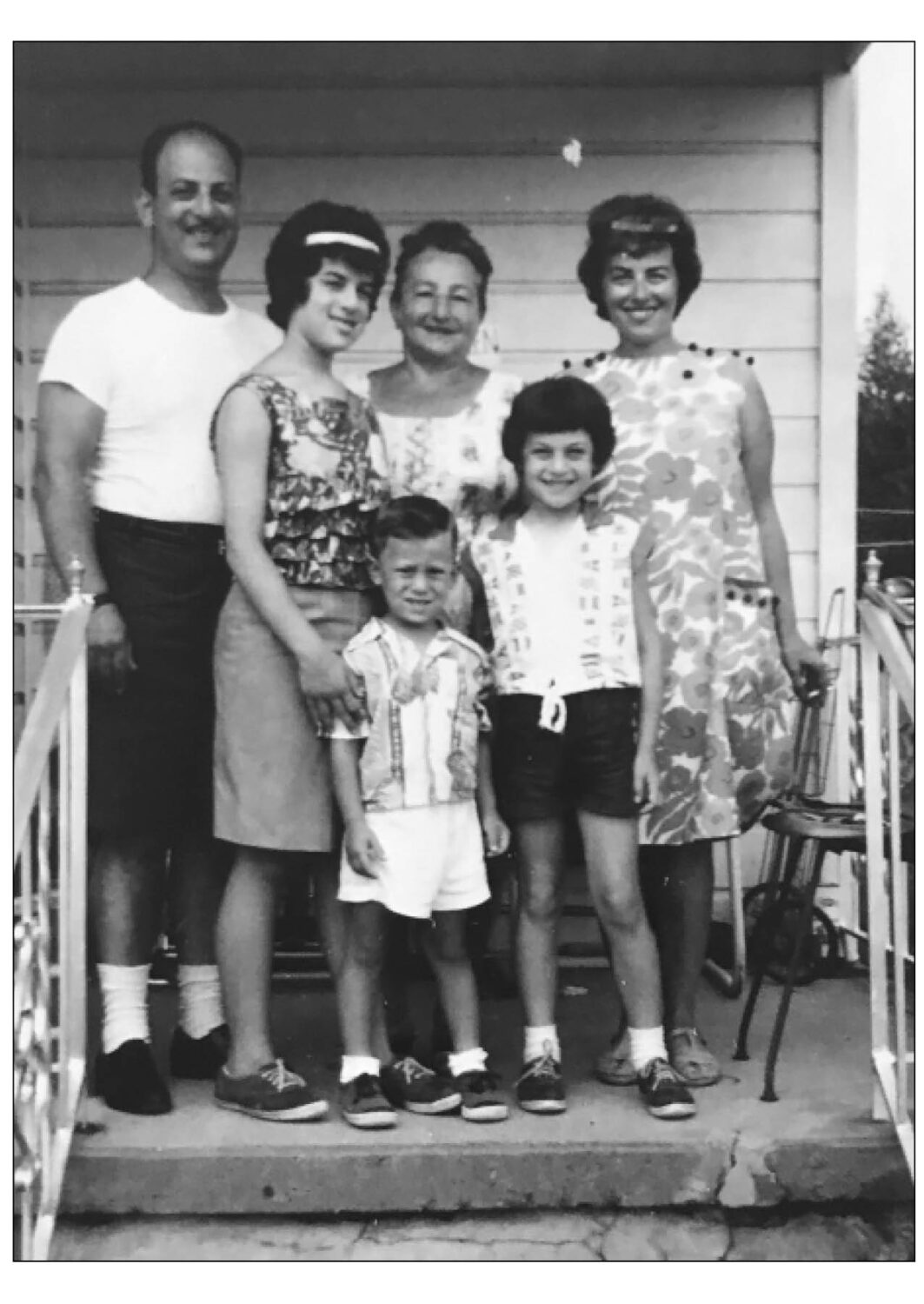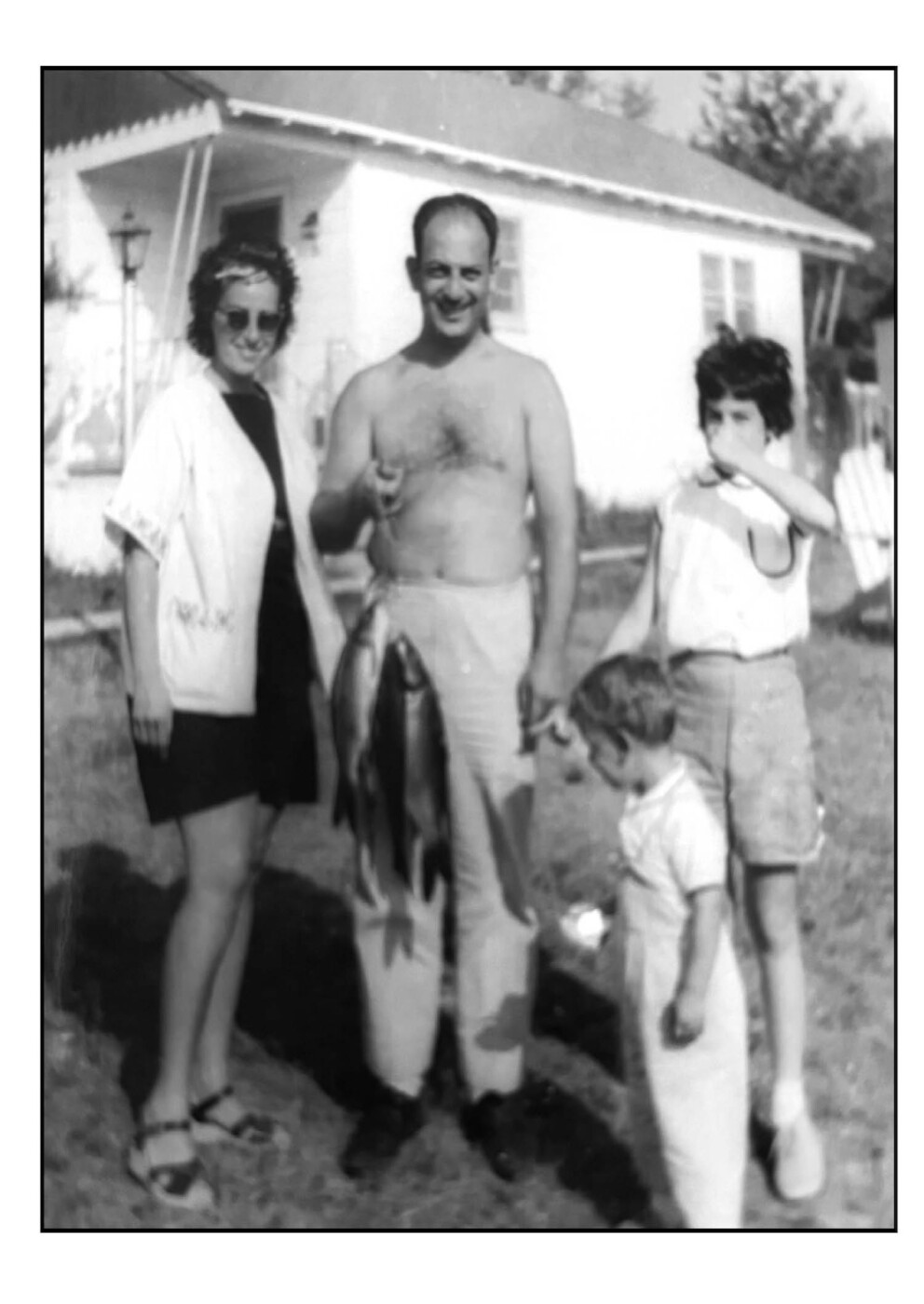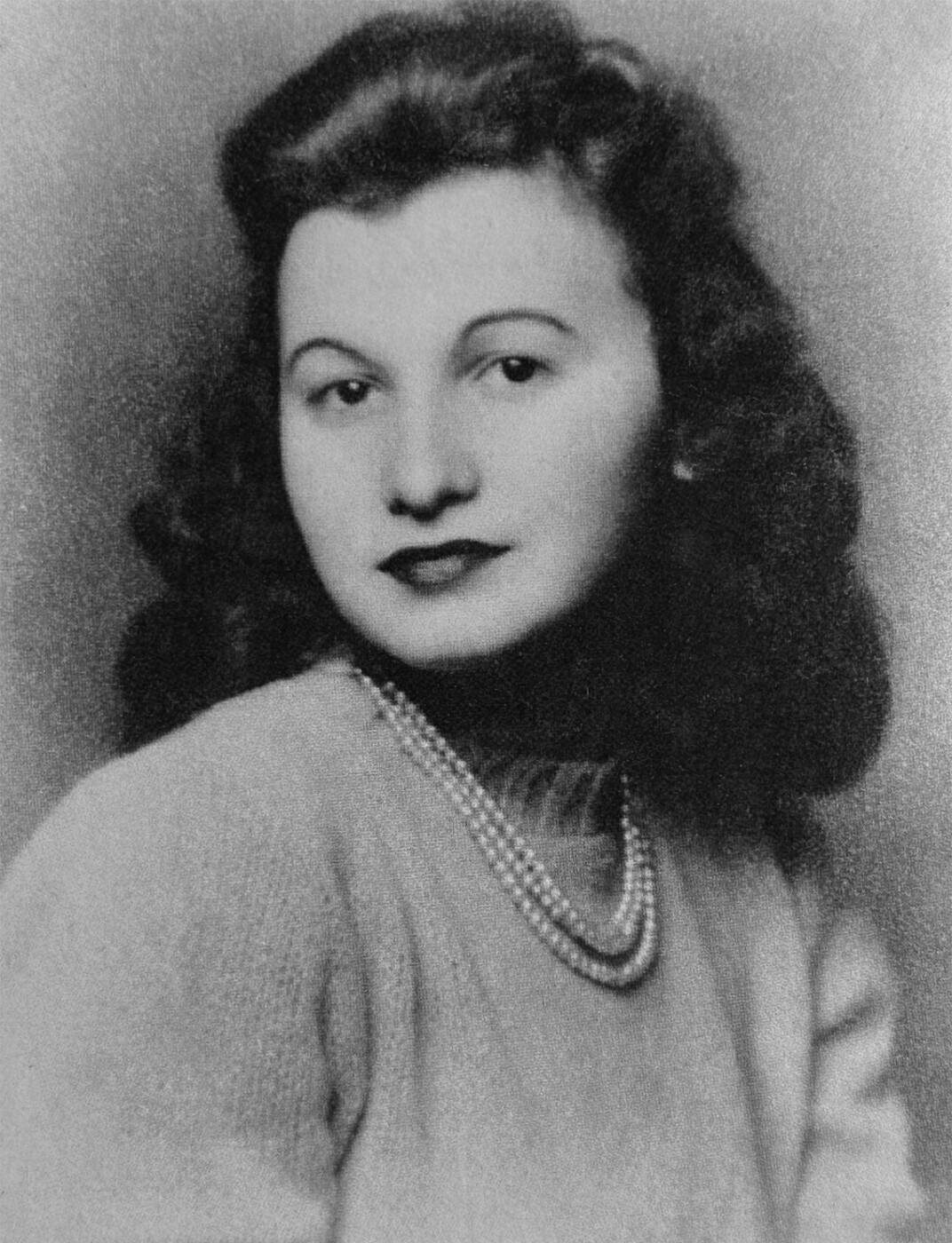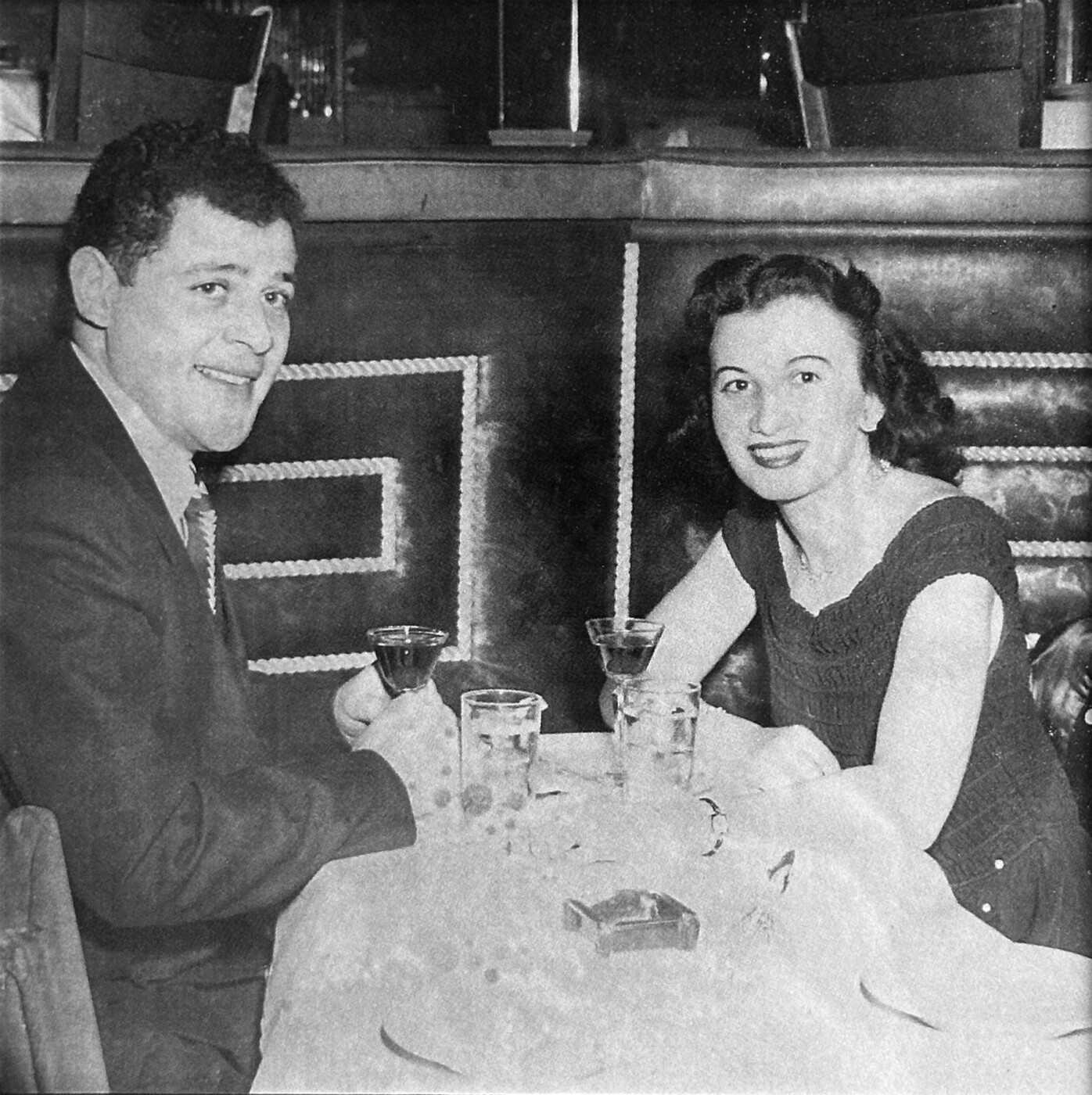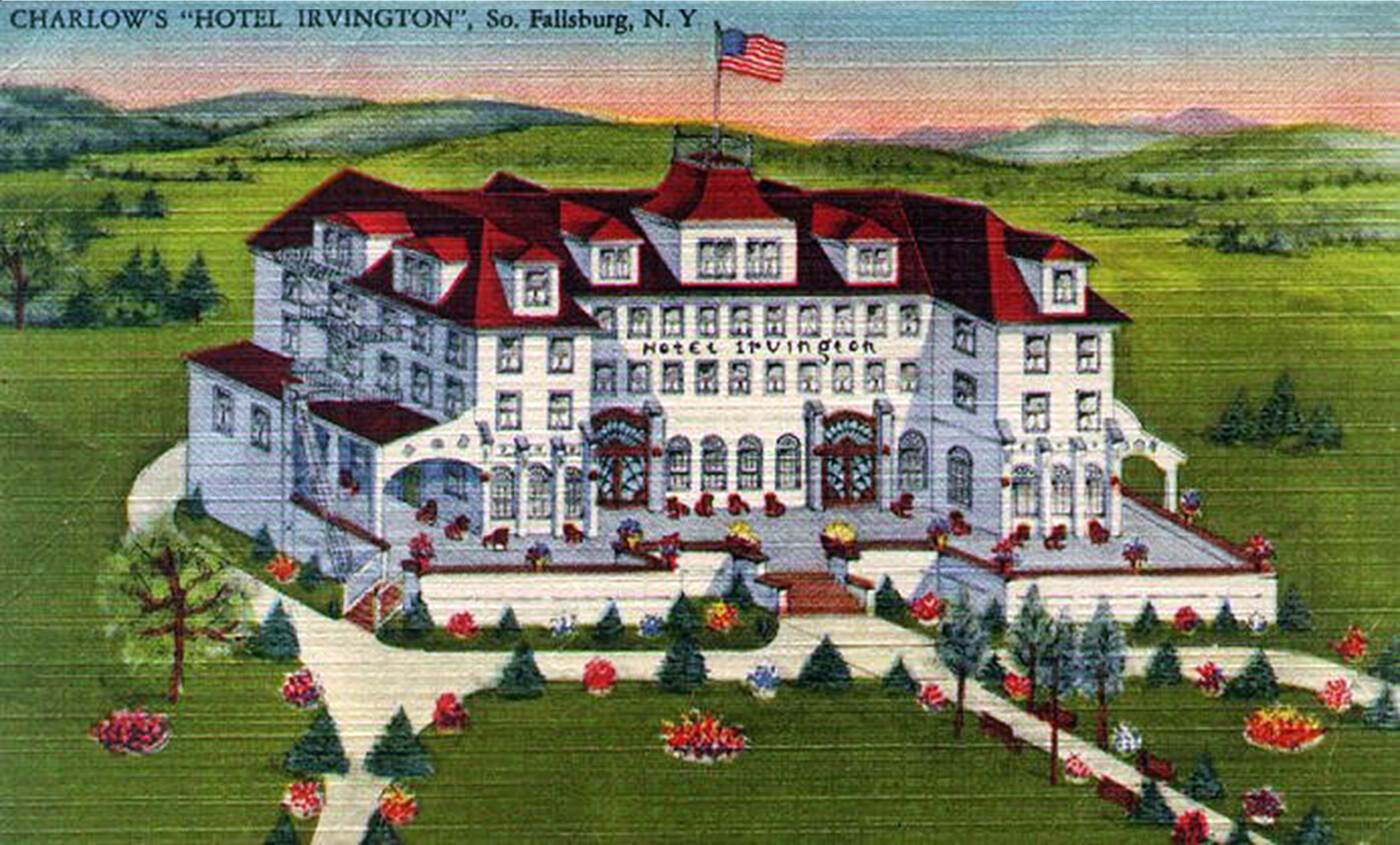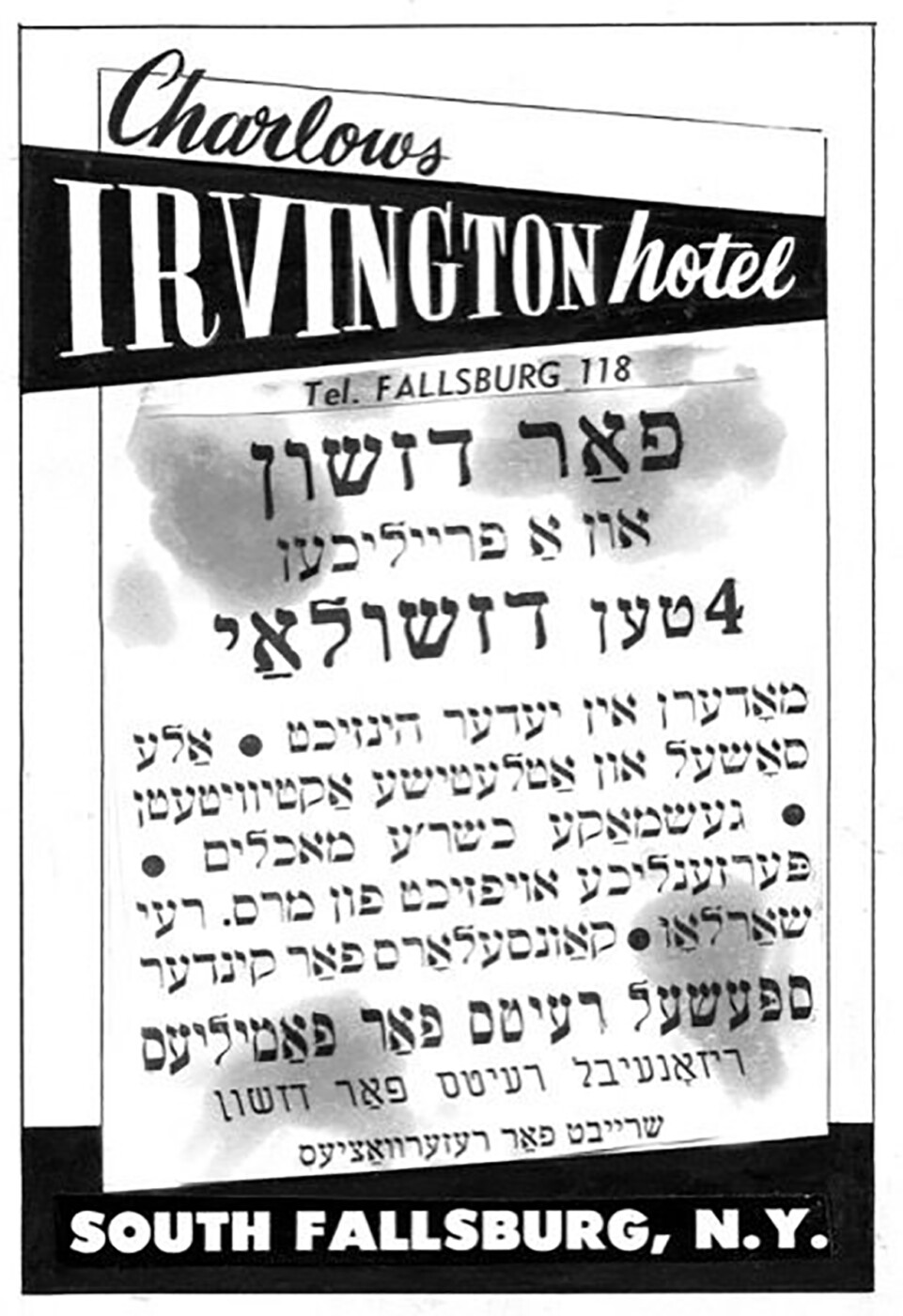As a part of RAWdance’s 20th Anniversary Home Season at ODC Theater, Tam Putnam, Co-Director of Litquake’s Elder Project, and Marquis Engle, Managing Director of RAWdance, created a collaborative exhibit that was on display in ODC Theater’s lobby and Robin’s Cafe for the month of October 2024. This exhibit served as a companion piece to Escape—one of the four premieres in RAWdance’s season—and featured stories from members of the Elder Project about their youth in the Catskills, treasures from their personal archives, artifacts from the Borscht Belt Museum and Catskills Institute, personal photos from the LGBTQ Russian River community courtesy of Shad Reinstein, and snapshots from Black leisure sites in Southern California from the Lewis Family Collection, courtesy of Dr. Alison Rose Jefferson.
Taken together, the exhibit offered a glimpse into American, culturally rooted, historical leisure spaces, honoring them while acknowledging some of their inherent complexity. A portion of the exhibit — stories and memorabilia from members of Litquake’s Elder Project and Bart Charlow — is reproduced in digital format below.
Read the full curatorial statement from Marquis Engle (Managing Director, RAWdance) & Tam Putnam (Co-Director, Litquake Elder Project)
In the US, in the 20th century, if you were Black, Jewish, or held hands with someone of the same sex, you were often unwelcome at the pool or the hotel.
In response, queer, Black, and Jewish folks created their own vacation enclaves: the Jewish Catskills (aka the Borscht Belt); the Black resorts of Southern California; Provincetown and Fire Island on the East Coast and Russian River in Northern California. Similar enclaves were frequented by other marginalized groups. We celebrate the resilience and creativity of all these communities in forging spaces of joy and kinship in the face of adversity.
In these places, we were free—to hold hands, to stretch out on a beach towel without being bothered, to speak Yiddish.
Elsewhere, restrictions applied: In 1955, the Anti-Defamation League of B’nai B’rith reported that “73 out of 88 Fort Lauderdale hotels displayed outdoor signs reading ‘Gentiles Only,’ ‘Restricted Clientele,’ or ‘Selected Clientele.’ ”
Black Californians could take it easy at Bruce’s Beach from 1912 until 1924, when the Bruces, the African American family that owned that stretch of shoreline, were forced to turn it over to Manhattan Beach for an insignificant payment. Zoning rules, segregation, and even the Ku Klux Klan discouraged Black beachgoers from the SoCal shore.
In 1954, an editorial in the San Francisco Examiner read, “[T]here must be sustained action by the police and the district attorney to stop the influx of homosexuals. Too many taverns cater to them openly. Only police action can drive them out of the city” (noted by Donna Graves and Shayne Watson in their LGBTQ Historic Context Statement for San Francisco).
In the 21st century, things aren’t necessarily better for everyone. In 2005, a Muslim girl wearing a modest bathing outfit was prevented from swimming in a public water park in Ypsilanti, Michigan.
For some of us ostracized from “mainstream” vacation lands, the Borscht Belt, the Black SoCal resorts, and the Russian River gave us refuge. We swam, we ate, we flirted. We found our people.
Read an artist statement from RAWdance’s Co-Artistic Directors, Ryan T. Smith and Wendy Rein, for more about the inspiration for Escape
When we shifted RAWdance to a bicoastal model in 2019, we moved to a small hamlet, High Falls, in New York’s Hudson Valley. It didn’t take us long to realize that we were in the thick of the former Borscht Belt, a wide swath of the Catskill Mountains dotted by bungalow colonies and resorts that invited Jewish New Yorkers, many of whom lived in cramped tenements, to escape the summer heat through much of the 1900s. Wendy had heard vague mentions of her grandfather’s having worked at one of the resorts as both an electrician and a Big Band-era musician, and that her dad worked as a bellhop in the summer. Suddenly these former vacation havens were in our proverbial backyard, inspiring us to learn more about what they meant to thousands who were excluded from other mainstream spaces.
Over time, we discovered that similar leisure spots and hotels for other immigrant and marginalized communities were nearby, such as the Peg-Leg Bates Hotel — at one time the largest Black-owned-and-operated resort in the country. And we started to reflect on the queer vacation meccas still serving the community such as Fire Island, the Russian River, and Provincetown, which has ties in Ryan’s personal history.
We didn’t set out to create a dance piece, but as we thought more and more about these spaces, their origins, and importance in our cultural history, the seeds for our new work, Escape, started forming. This exhibit serves as a companion piece to the work, with its photos, memorabilia, and, most importantly, its personal stories offering a glimpse into many of these culturally rooted holiday spaces, honoring them while acknowledging some of their inherent complexity.
Click here to read the full text of each story by the members of Litquake’s Elder Project
Dan Brook
“The big hotels in the Borscht Belt
were like a stationary cruise…”
Josh Koral
“My friend Denis, who got me the
job, would pick me up in his two-toned
1959 Ford Fairlane at 5:45 every
morning, seven days a week.”
Barbara Kivowitz
“I was seven years old with no sense of direction, and no fear.”
Raina Cohen
“In the hot, sticky days of June, we traded the steaming heat and bustle of Brooklyn for the green, leafy quiet of ‘the country.'”
Irene Zahler
“My mother didn’t know all the craziness I could get into, if only I had the chance.”
Bart Charlow
“Have you ever loved something so deeply that at the same time drove you mad?”
Bart Charlow, from his book A Catskill Carnival: My Borscht Belt Life Lived, Lost and Loved:
My grandparents had a farm in Woodridge, rented rooms in the summer to city folks, put a hotel in the Catskills, built a family and a life for us, and helped build a culture and an era with impact on America, their adopted homeland. That’s my story. It might be yours too, if you visited or worked or knew someone who did in the Borscht Belt Catskills of the last century. If we shared even a day of that, I love you for it. But even were you one of the millions—yes, millions—of annual holiday-makers who might only pass on the roads, then you too were blessed, and I’m blessed that you were there.
Have you ever loved something so deeply that at the same time drove you mad? Of course you have. Well, me too….
We were carnies—carnival people—only we didn’t move the tents. That’s the Borscht Belt in a nutshell, and we were the chief nuts. If you think you know the Catskills, you may well know some of the attractions, less likely in the way that we do.
So let me lift the curtain for you. In the center ring, we have the dining room and the nightclub. Ancient Rome showered her citizens with bread and circuses, hoping to fill them with enough food and entertainment to keep them fat, dumb, and happy. So did we in the Jewish Alps, the Sour Cream Sierras, and boy, did they lap it all up. You too if you grew up on early TV anywhere in the US, because those entertainers cut their teeth on our stages….
To the ring on my left we have the animal acts and the sports and the day camp. We had our gladiators too—pickup teams of guests and staff challenging one another and the other hotels to baseball, volleyball, handball, and any other manly or womanly sport. Sweaty days laughing, cheering, and jeering while chasing one kind of ball or another, in between the food and the nightly revels….
When the adults played their games, so did the kids, with morning-to-night day camps and teen rooms. Everybody wins.
And in the ring on my right, we have the pool and the canteen. Cabana boys and pinball. Both kinds of cream—Bain de Soleil bodies roasting in the summer sun, egg creams and pretzels in the canteen. Rumba lessons every afternoon, until the turning of the dance fads brought the twist. Oy!
You may have noticed the sideshow on the way into the main tent: the staff. You saw Dirty Dancing, did you, and you thought that was fiction? Marvelous Mrs. Maisel? Oh, do I have a tale to tell you. But I’ll bet you missed half the excitement behind the bleachers in the big tent. It was “Sex in the Country.” And if you didn’t miss that act, then please be kind enough not to mention names.…
It was a circus all right, and our families were the ringmasters. As in any real circus, we fed and cleaned up after the elephants, too. That’s a whole lot of poop, and believe me, there was a lot of shit going on. But oh those elephants, you gotta love ‘em. So take your seats, ladies and gentlemen, boys and girls, guests of the Hotel Irvington: it’s Decoration Day, and the circus is in town!

